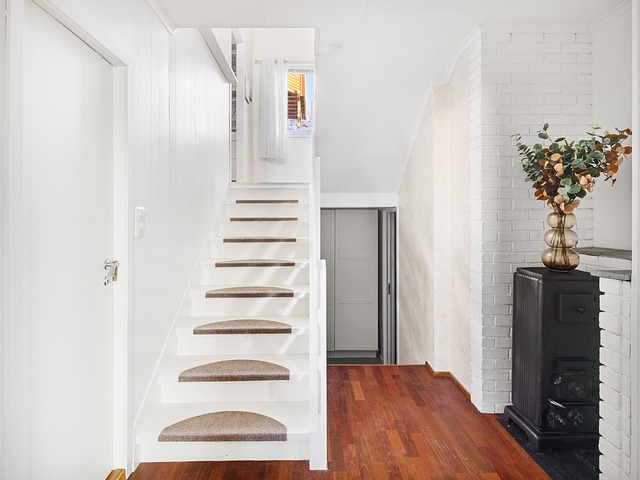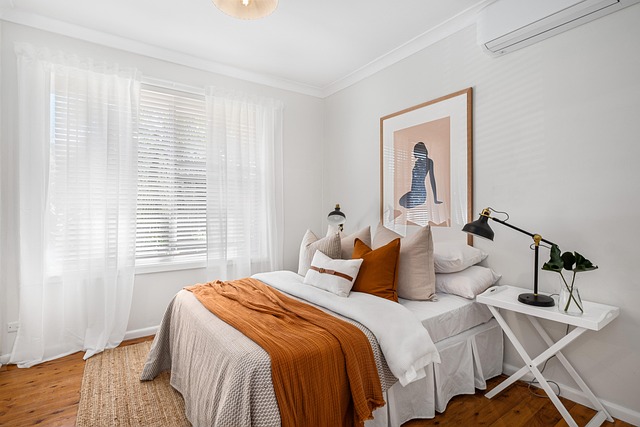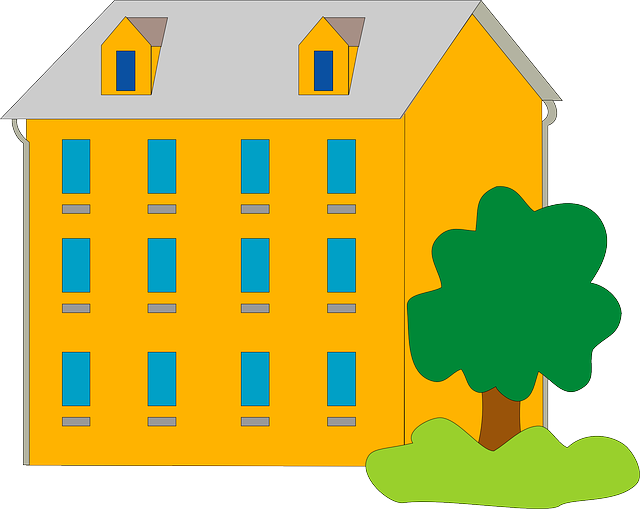Before searching for student housing, understand your needs and budget. Research options early, considering location, amenities, and affordability. Use a checklist to stay organized and find accommodation that suits personal preferences. Communicate clearly with landlords and negotiate lease terms for favorable conditions. Start the search early, explore various options, and review lease agreements thoroughly for a smooth transition into student housing.
“Navigating the student housing market can be daunting, but with the right strategies, you can find your perfect home away from home. This comprehensive guide equips students with essential tools to conquer the search for ideal rental accommodations. From defining budget and needs to negotiating lease terms, we explore every step required for a successful transition.
Discover how thorough research, careful evaluation using our provided checklist, and effective communication with landlords can lead to a positive experience. Learn insider tips for a smooth move-in process, ensuring you’re prepared for all aspects of renting as a student.”
- Understanding Your Needs and Budget for Renting as a Student
- Researching and Exploring Different Housing Options
- Creating a Checklist for Evaluating Potential Student Accommodations
- Communicating Effectively with Landlords and Property Managers
- Negotiating Lease Terms and Understanding Legal Rights
- Moving In: Tips for a Smooth Transition into Your New Student Home
Understanding Your Needs and Budget for Renting as a Student

When embarking on the search for student housing, it’s imperative to begin by understanding your unique needs and budget. Renting as a student involves more than just finding a roof over your head; it’s about creating a living space that supports your academic and social life. Consider factors such as proximity to campus, commute times, the availability of essential amenities like laundry facilities or high-speed internet, and shared common areas that foster community building. These considerations will shape your ideal housing setup.
Budgeting is another critical aspect. Student renters often have limited financial resources, so it’s crucial to set a realistic spending limit. Compare rental prices in different areas near campus to find the best value for your money. Keep in mind additional costs like utilities, furniture, and potentially a security deposit. By clearly defining your needs and budget early on, you’ll be better equipped to make informed decisions during the housing search process.
Researching and Exploring Different Housing Options

When beginning your search for student housing, one of the most effective strategies is to research and explore a variety of options. Start by understanding your budget and what amenities are essential for your living needs. Many students opt for renting apartments or rooms in shared houses, which often come with benefits like utility bills included or access to common areas that foster socializing. Online platforms dedicated to student housing can be invaluable tools; they offer a wide range of listings tailored to students’ unique requirements.
Delve into different neighborhoods and consider the proximity to your educational institution. Some areas might be more affordable but less safe, while others could offer a vibrant social scene but higher living costs. Exploring these options early on will give you a solid foundation for making informed decisions as you navigate the exciting yet challenging process of finding the perfect student housing arrangement.
Creating a Checklist for Evaluating Potential Student Accommodations

When searching for student accommodations, it’s essential to stay organized and have a clear idea of your priorities. Creating a checklist is an effective way to streamline the process and ensure you don’t overlook any crucial factors. This list should include various criteria that cater to your specific needs as a student. For instance, consider aspects like location – proximity to campus or public transport; budget-friendliness, including utility costs; safety features; and on-site amenities such as high-speed internet, laundry facilities, or social spaces.
Additionally, think about the overall environment: is it in a vibrant, bustling area with easy access to local attractions, or do you prefer a quieter neighborhood? Your checklist should also incorporate personal preferences, such as private versus shared rooms, single-occupancy units, or specific floor preferences. By having this prepared guide, renting for students becomes less daunting, enabling you to make informed decisions and secure your dream accommodation with ease.
Communicating Effectively with Landlords and Property Managers

When searching for student housing, effective communication with landlords and property managers is key. Students should be prepared to articulate their needs clearly, such as desired move-in dates, preferred living arrangements (e.g., roommates), and any special accommodations required. It’s also beneficial to approach the interaction professionally, showing respect and understanding of the landlord’s perspective.
During discussions or when submitting applications, students renting for students should ask relevant questions about the property, neighborhood, and rules. Demonstrating genuine interest and being proactive can set a positive impression. Effective communication not only increases the chances of securing the desired accommodation but also ensures a smoother transition into a new living environment.
Negotiating Lease Terms and Understanding Legal Rights

When renting for students, negotiating lease terms is a crucial part of securing the best deal. Don’t be afraid to ask questions and advocate for your needs. Student housing often comes with specific rules and regulations, so understanding your legal rights is essential. Know your tenant protections, such as right to privacy, fair eviction processes, and limits on security deposits. This knowledge will empower you to make informed decisions and navigate any potential issues that may arise during the tenancy.
During negotiations, consider advocating for longer lease terms, which offer stability and often come with lower rates. Also, inquire about flexible move-in and move-out dates to align with your academic schedule. Understanding your rights and responsibilities beforehand fosters a healthier landlord-tenant relationship, ensuring a more positive living experience for students.
Moving In: Tips for a Smooth Transition into Your New Student Home

Moving into your new student home is an exciting step, but it can also be a bit daunting. Here are some tips to ensure a smooth transition. First, start early—well before the semester begins—to give yourself ample time to find the perfect place. Many students rush into decisions, leading to regret later. Take your time to explore various options through student housing platforms or university resources, focusing on locations close to campus for convenience.
When viewing properties, consider factors like safety, amenities, and the overall vibe. Check if essential services like high-speed internet and utilities are included in the rent, as this can significantly impact your budget. Also, familiarize yourself with the lease agreement, understanding the terms and conditions clearly. This will help you avoid any surprises and ensure a hassle-free rental experience for students.
